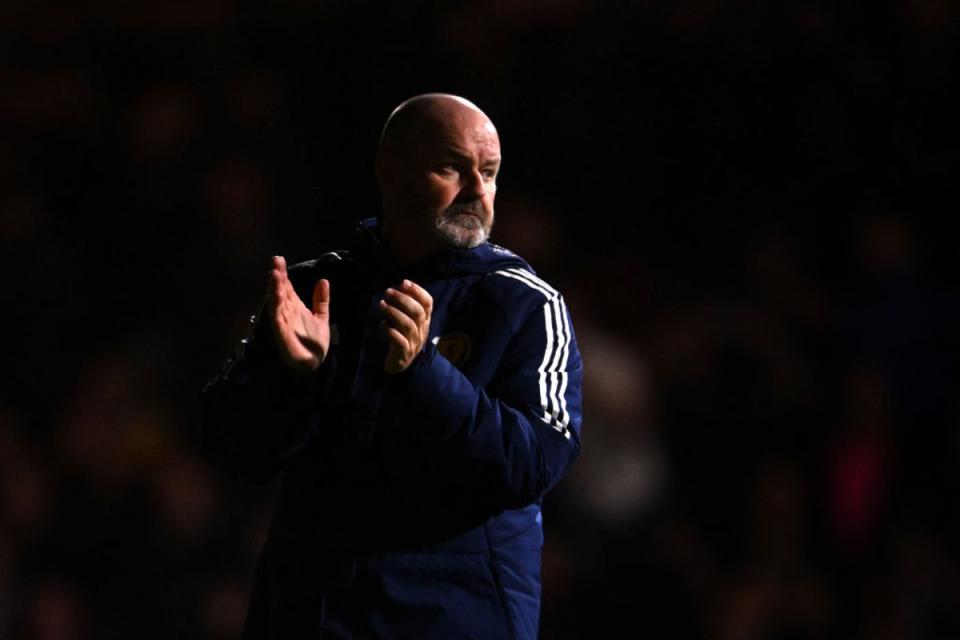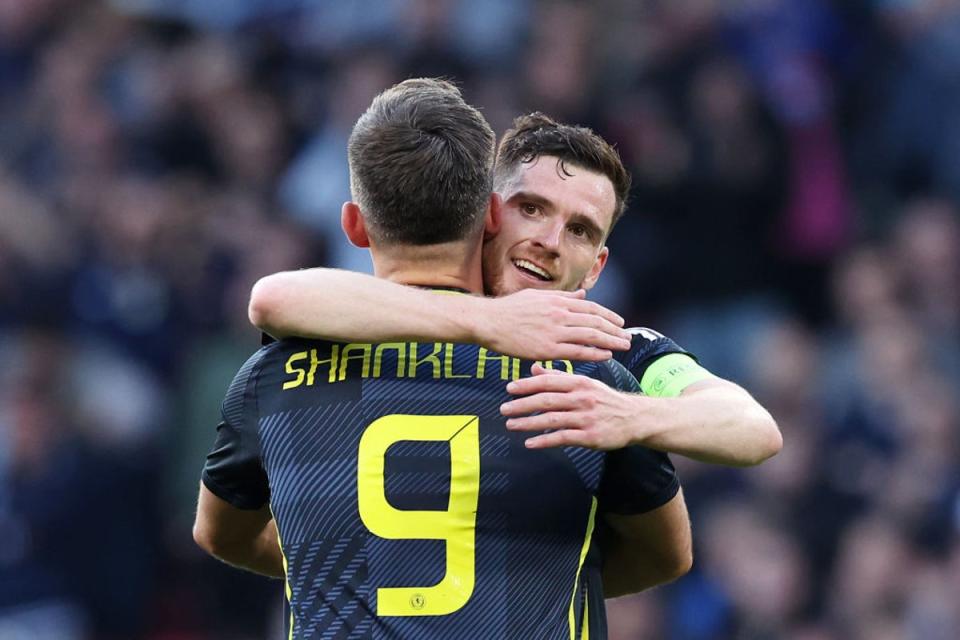Steve Clarke does NOT endorse this article – and that’s fine, we’ll get back to Steve Clarke in a moment. In case you hadn’t heard, Scotland are heading to their second major international men’s tournament in 26 years. After the subdued, Covid-restricted taste test of Euro 2020 three years ago, Euro 2024 in Germany is the real deal: the Tartan Army will return, with tens of thousands of people released on the continent and in full voice, vibrant after a qualifying campaign that left a nation learned to dream again. Nothing could diminish the excitement now. Nothing.
Just wait. Injuries to whom? One win since when? Germany is finally itself again? Stable on. This wasn’t going to be easy, but just because Scotland squeezed past the minnows of Gibraltar in a friendly last week didn’t mean Scotland would head into the European Championship on a wave of optimism. Clarke hardly repeated the hubris of Ally MacLeod in 1978 when the Scotland manager criticized ‘negative Northmen’ in the press. “What is there to be negative about? Why not just relax and enjoy,” he said. “I just don’t understand why anyone would be negative about a second European Championship in a row.”
Clarke isn’t wrong, but there are, admittedly, some major issues ahead of Friday night’s opener against the hosts. A thin squad has been further depleted, with injuries in key positions where there is a shortage of replacements. Right-backs Aaron Hickey and Nathan Patterson, and Italian midfielder of the year Lewis Ferguson, were ruled out before Lyndon Dykes, the battering ram striker who had played a crucial role in Scotland’s recent success, suffered an ankle ligament injury in training. Euro 2024 can simultaneously feel like the tournament Scotland has been waiting a generation for, yet it arrives at exactly the wrong time for this squad.
But enough: Scotland and Clarke have already achieved too much to be written off so dismissively and before a ball has been kicked. After all, this is the team that defied the odds in qualifying, that brought back the Hampden roar after stunning Spain, and is responsible for the absence of Erling Haaland and Martin Odegaard in Germany with that late comeback in Oslo. A run of five straight wins to open qualifying for Euro 2024 was testament to what Scotland had built under Clarke since he took charge in 2019: a club-like environment that has fostered a sense of unity and spirit.
There is no special formula, only the organization and involvement of the entire group. “It just comes down to your day-to-day basis,” explained midfielder Callum McGregor. “The manager has a very good system that the players believe in.” None of that needs to change, despite the most important absences. Compared to other countries, Scotland may be short on potential match winners, but they have character and cohesion. Andy Robertson, John McGinn and Scott McTominay can provide moments of inspiration. Collectively, Scotland will benefit from their experiences of Euro 2020, even if they only collected one point and were disappointed by their group stage exit.
The feeling after Scotland deservedly qualified for Euro 2024 was that Clarke’s side could build on that tournament, especially as the Group A draw that the Tartan Army received looks slightly more favorable than three years ago. While Germany is the favourite, it will be a fierce battle between Scotland, Hungary and Switzerland for second and third place. The format works in Scotland’s favor, but the same goes for their opponents in Group A. Hungary, with recent wins over England and Germany under their belts, are being tipped by some as dark horses. Switzerland can rely on experience and has reached the knockout stages in five consecutive major tournaments. Both have more star quality than Scotland, but one win could be enough. Clarke is aiming for four points.

And yet one win, against Gibraltar, the second-lowest ranked team in Europe, is all Scotland have managed since qualifying for the European Championship. A loss of form and a seven-match winless run following their qualification can be partly attributed to the clash against England, Spain, France and the Netherlands, the latter three all away from home. Clarke’s side had competitive spells in matches where performances against some of Europe’s heavyweights were more important than results. It would be less worrying if Scotland were at full strength, but within that there is a wider trend that is perhaps more worrying.
Scotland will need to be determined and resilient when they play hosts Germany on Friday night, but recent form suggests the country has become prone to lapses in concentration. A defense that has only conceded a penalty from Erling Haaland in its first five qualifying games has become noticeably tighter since Phil Foden and Jude Bellingham scored twice in three minutes last September. In subsequent defeats, Scotland conceded two in 13 minutes against Spain, three in 35 against France and three in 14 against the Netherlands. Last week it struck again against Finland. Scotland were on their way to a morale-boosting farewell, before the visitors scored two late goals in the space of thirteen minutes to salvage a 2-2 draw.


However, goal scoring could be an even more serious problem. Che Adams only averaged scoring every five games for Scotland and his opener against Gibraltar was his first in almost two years. Lawrence Shankland has just three international goals to his name, but the Scottish player of the year could start in Munich in place of the injured Dykes. McGinn and McTominay remain Scotland’s biggest threats from midfield, with Bristol City striker Tommy Conway and New York Red Bulls winger Lewis Morgan both called up as injury replacements, completely untested as attacking options. It’s a theme: Anthony Ralston is expected to start at right full-back after a season in which the 25-year-old was second choice and made just six starts for Celtic.
However, Clarke has never grumbled or complained about the hand he was dealt, and in many ways the 60-year-old remains key to what Scotland are trying to achieve. Clarke has become the unlikely face of Scotland’s revival, the man who speaks only in soft, low tones and sends the Tartan army into Germany for their biggest party in a generation. He is right to disdain the negativity. There is still hope as tens of thousands arrive in Munich ahead of the opening match, even as Scotland enter Euro 2024 missing everything they need to progress: wins, goals, clean sheets and right-backs among them. But Clarke has done wonders for this team, Scotland have built on this. He believes – and that might be enough for everyone else too.